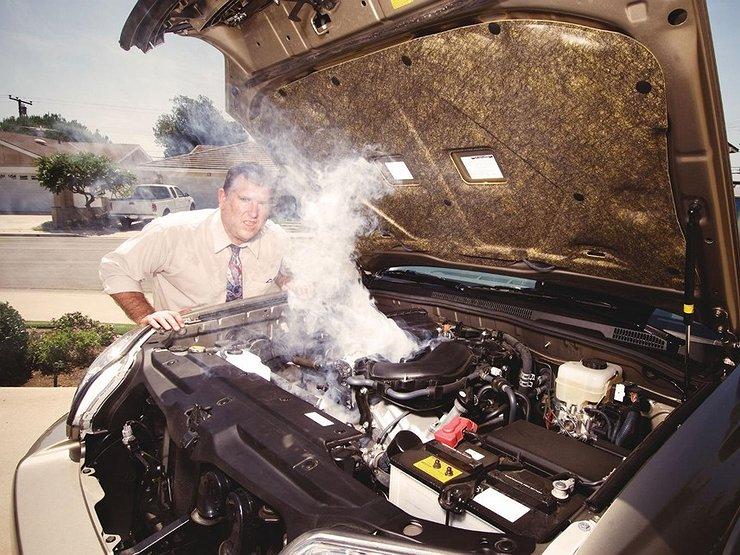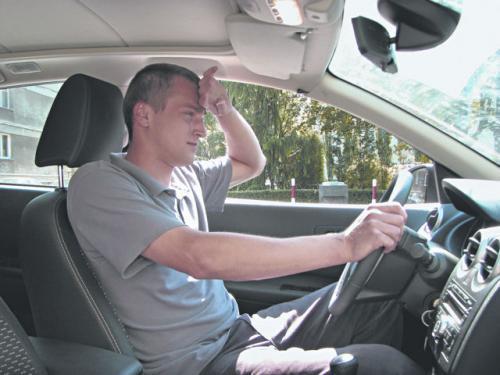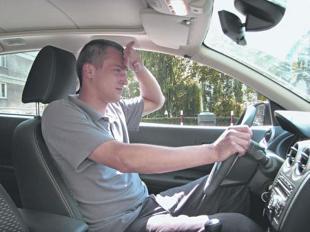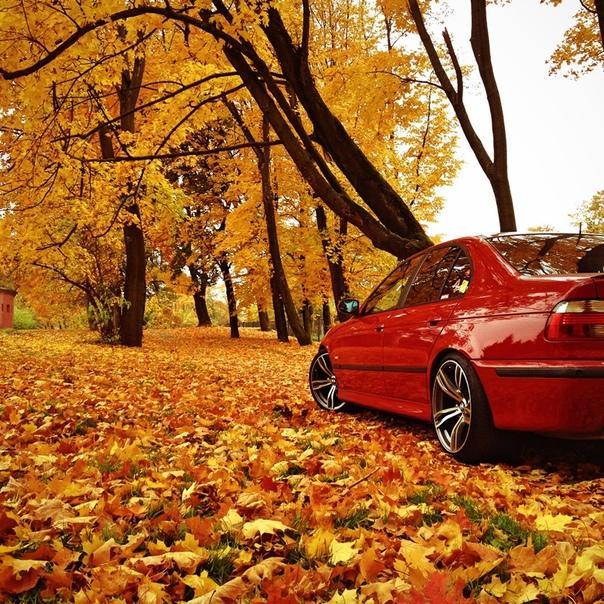
Car breakdowns in hot weather. How to cope?
 This year, the heat is extremely annoying, and although weather forecasters emphasize that temperatures above 30 ° C are the norm for our latitudes, it rarely lasts so long. “High temperatures can cause damage to the brakes, engine and battery. It is worth being prepared and knowing how to react,” says Marek Stempen, Director of the PZM Expert Bureau, SOS PZMOT expert.
This year, the heat is extremely annoying, and although weather forecasters emphasize that temperatures above 30 ° C are the norm for our latitudes, it rarely lasts so long. “High temperatures can cause damage to the brakes, engine and battery. It is worth being prepared and knowing how to react,” says Marek Stempen, Director of the PZM Expert Bureau, SOS PZMOT expert.
 Engine overheating
Engine overheating
In hot weather, especially in the city, when we often drive at high speeds or stand in traffic jams, it is easy to overheat the engine. The coolant temperature can reach 100°C, above this value the situation becomes dangerous. In older car models, the temperature indicator is usually made in the form of an arrow, and when it is exceeded, it is shown that the indicator enters the red field), in newer models, the values \uXNUMXb\uXNUMXbare displayed on the cab or on-board computer informs us only when overheating has already occurred.
Engine parts that can be damaged by excessive heat include rings, pistons, and the cylinder head. What to do if the engine overheats? Stop the vehicle as soon as possible, but do not turn off the engine. Carefully open the hood, it can be very hot (also watch out for steam), turn on the heating with maximum ventilation and wait until the temperature drops. We can then turn off the engine and cool it down with the hood open.
There can be several reasons for overheating, including a coolant leak, a malfunctioning fan or thermostat. “Don't joke about an overheated engine. Even if you manage to find out that the malfunction was caused, for example, by a leak of radiator fluid, you are not sure that some engine components are not damaged, the expert emphasizes. In such cases, it is better not to take risks and call for help. If we have assistance insurance, we have no problems, if not, you can always call for assistance through the free PZM Driver Assistant app.
Battery discharge
In hot weather, as well as in cold weather, batteries are discharged more often. This should be remembered, especially if the car has not been used for a long time in the summer, for example, on vacation. A small amount of electricity is constantly taken from the battery, the more heating, the more these values increase. In addition, the battery is destroyed much faster. Electrolytes simply evaporate, as a result of which the concentration of aggressive substances increases and the batteries degrade. If we have been using the battery for more than two years and we know that the car will not be used for a long time, consider replacing it to avoid unpleasant surprises.
Tire failure
Even summer tires are not adapted to asphalt temperatures of 60°C. Rubber softens, deforms easily and, of course, wears out faster. Soft asphalt and tires, unfortunately, also mean an increase in stopping distance. This is worth remembering, because most drivers in good weather mistakenly allow themselves less time to maneuver on the road, interpreting the road conditions as very favorable.
It is recommended to check the condition of the tread and tire pressure more often - it should correspond to the manufacturer's recommendations, these values \uXNUMXb\uXNUMXbmay be different for each car. Too low pressure causes the tires to run unevenly, which means more wear and much faster heating. In extreme cases, this will mean a broken tire. So let's keep in mind not only the condition of the tires we ride, but also the spare tire.
“During the heat and sudden changes in atmospheric fronts, the condition and concentration of drivers and pedestrians weaken,” recalls SOS PZMOT expert Marek Stepen. In some countries, such as Germany and Austria, special attention is paid to rising temperatures, the police and drivers receive special warnings.
The concentration of the driver in a very hot car is compared with the state in the presence of 0,5 ppm of alcohol in the blood. In hot weather, give yourself more time on the road and on a longer route, do not forget to rest and drink plenty of water.
